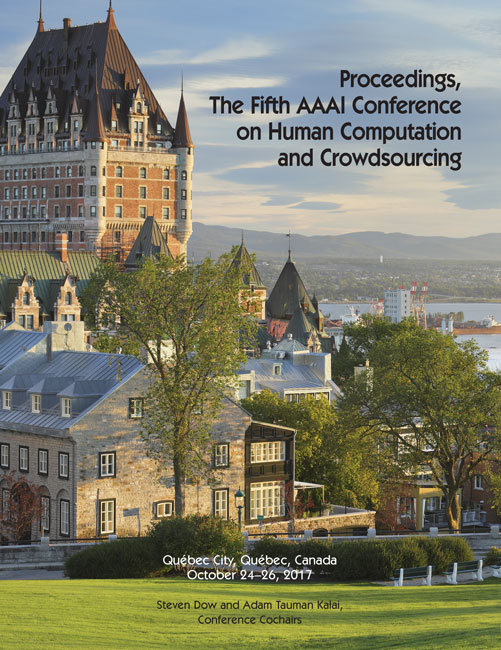Published:
2017-10-27
Proceedings:
Proceedings of the AAAI Conference on Human Computation and Crowdsourcing, 5
Volume
Issue:
Vol. 5 (2017): Fifth AAAI Conference on Human Computation and Crowdsourcing
Track:
Full Papers
Downloads:
Abstract:
Computer users today are demanding greater performance from systems that understand and respond intelligently to human language as input. In the past, researchers proposed and built conceptual analysis systems that attempted to understand language in depth by decomposing a text into structures representing complex combinations of primitive acts, events, and state changes in the world the way people conceive them. However, these systems have traditionally been time-consuming and costly to build and maintain by hand. This paper presents two studies of crowdsourcing a parallel corpus to build conceptual analysis systems through machine learning. In the first study, we found that crowdworkers can view simple English sentences built around specific action words, and build conceptual structures that represent decompositions of the meaning of that action word into simple and complex combinations of conceptual primitives. The conceptual structures created by crowdworkers largely agree with a set of gold standard conceptual structures built by experts, but are often missing parts of the gold standard conceptualization. In the second study, we developed and tested a novel method for improving the corpus through a subsequent round of crowdsourcing; In this “refinement” step, we presented only conceptual structures to a second set of crowdworkers, and found that when crowdworkers could identify the action word in the original sentence based only on the conceptual structure, the conceptual structure was a stronger match to the gold standard structure for that sentence. We also calculated a statistically significant correlation between the number of crowdworkers who identified the original action word for a conceptual structure, and the degree of matching between the conceptual structure and a gold standard conceptual structure. This indicates that crowdsourcing may be used not only to generate the conceptual structures, but also to select only those of the highest quality for a parallel corpus linking them to natural language.
DOI:
10.1609/hcomp.v5i1.13304

HCOMP
Vol. 5 (2017): Fifth AAAI Conference on Human Computation and Crowdsourcing
ISBN 978-1-57735-793-3
